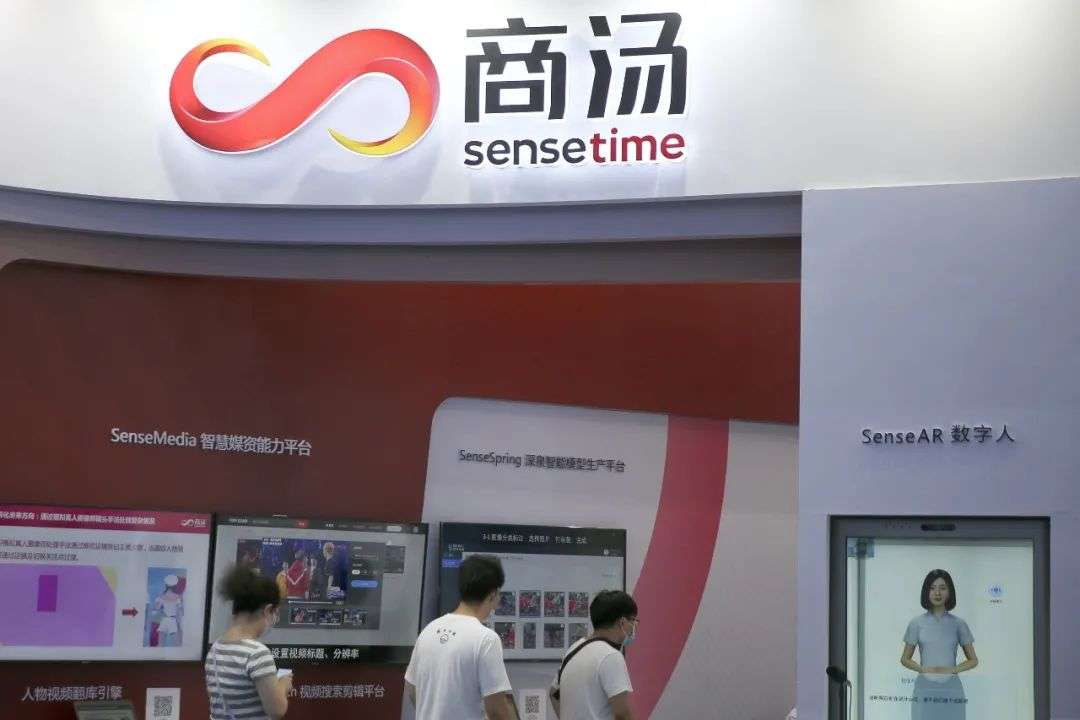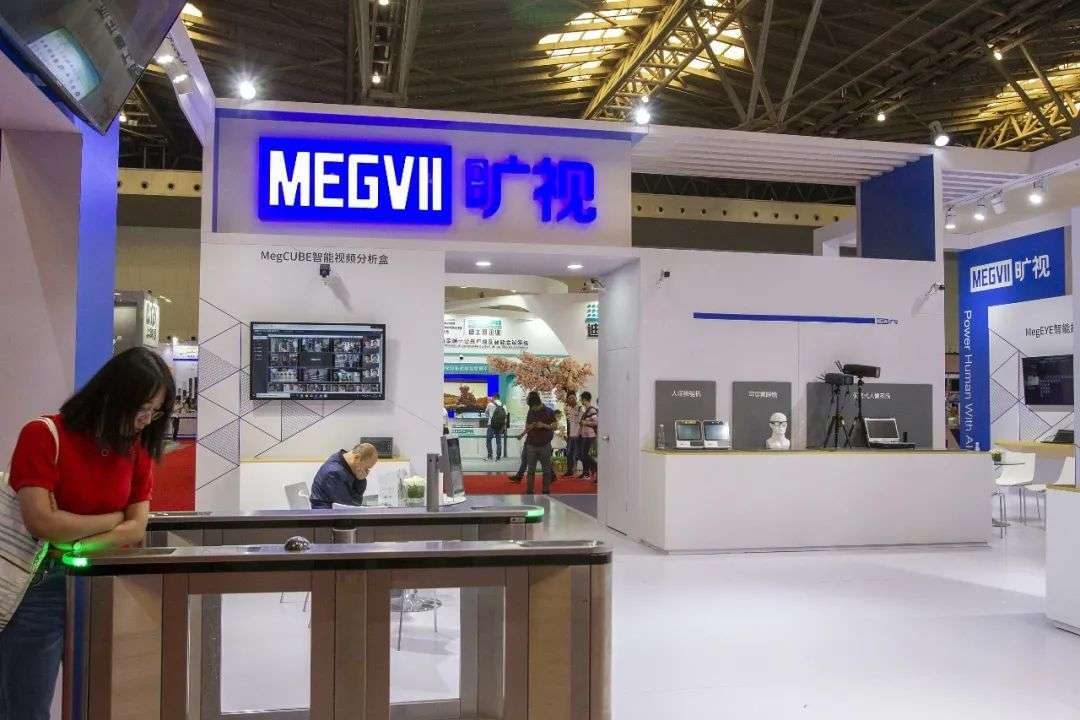AI is difficult to make money.
Editor’s note: This article is from the WeChat public account “Leopard Change” (ID: baobiannews), author Mu Yu, editor Zhang Yang. Released with authorization.
Core Tips
The aura of technology faded, and the enthusiasm of capital dissipated. The four AI dragons, Yitu, Yuncong, and Shangtang had to fight on their products, allowing investors to see the possibility of profit. However, in the absence of continuous investment, speeding up the launch of new businesses can only make the already wealthy companies worse. SenseTime needs to stop and think about what its core competitiveness is.
In November 2018, Tang Xiaoou, a professor at the Chinese University of Hong Kong, was invited to participate in a symposium on private enterprises. After he took his seat, he was surrounded by the big stars of Yishui, Ma Huateng, Robin Li, Lei Jun, Zhang Jindong, and Zong Qinghou. . .
At the meeting, ten entrepreneurs spoke, including Lu Weiding, President of Wanxiang Group, and Hengrui Compared with them, Sun Piaoyang, chairman of the pharmaceutical, Tang Xiaoou appears unknown, but he is also one of the speakers, and his identity is no longer a professor, but The chairman of Shangtang Technology.
He mainly talked about artificial intelligence. His speech was not long, and the prepared speech only had 1124 words. Regarding artificial intelligence, Tang Xiaoou made two suggestions: scientific planning and layout of artificial intelligence development;Encourage state-owned enterprises and private enterprises to join forces to promote international cooperation.
After the meeting, Tang Xiaoou appeared on CCTV and talked about his feelings about participating in the forum: “Confidence” is full.
That year, SenseTime was a hot company in the capital circle. Within one year, it completed Series C, Series C+ and Series D financing, raking in more than US$2.2 billion (approximately RMB 15 billion), SoftBank, Temasek , Tiger Fund rushed to follow suit.
From a “leather bag company” with no telephone and no work station at the Chinese University of Hong Kong, to a well-known investment institution, it took only four years for Shangtang Technology to be valued at more than US$10 billion.
In July this year, the first Cambrian stock of AI chips was listed on the Sci-tech Innovation Board. It rose by 290% on the first day of trading, and its market value exceeded 100 billion yuan. A countdown sounded in the ears of all AI track startups-He When will it be listed?
One of the AI Four Little Dragons, Shangtang Technology, known as the “financing machine”, was naturally pushed to the forefront. Bloomberg reported that SenseTime is considering IPOs in Hong Kong and Shanghai. According to media reports, SenseTime plans to complete a new round of financing of US$1 to 1.5 billion within this year.
Shang Tang remained silent in the face of the discussion from the outside world. Today, the new round of financing has not yet landed, but the argument that “shangtang is too expensive” has been rampant.
The “financing machine” is weak
The enthusiasm for capital has faded. Whether the AI industry is profitable or not has become a standard to measure, and financing has become more difficult.
Shangtang Technology has not raised funds for nearly two years.
In 2020, among the AI Four Little Dragons, Yitu Technology completed a financing of 200 million US dollars, and Yuncong Technology completed a financing of 1.8 billion yuan. Megvii Technology is waiting to be listed, but Shangtang Technology’s financing has not yet landed.
Shangtang Technology’s last round of financing remained in September 2018, and SoftBank invested $1 billion in one fell swoop. This huge investment not only provided SenseTime with sufficient ammunition, but also placed it in an awkward position. After the completion of this round, SenseTime became the unicorn with the highest valuation in the industry. Questions from the outside world followed-really Is it worth so much money?
This is actually a problem faced by the entire AI industry, but Shangtang has been pushed to the forefront of the tide.
Watershed In March 2016, a long-planned AI incident completely changed everything-AlphaGo developed by Google defeated the world champion of Go Lee Sedol. The world was shocked by the power of the algorithm, and capital smelled an unusual breath. At the same time, the innovation of the mobile Internet business model has come to an end. The mountain has already appeared, the bubble is raging, and the capital is withdrawn from this base in batches and turned to AI startups with technology as the core driving force.
Before this, SenseTime was just a small well-known AI startup company. It has just completed two rounds of financing, and each round is still at a quota of tens of millions of dollars. Afterwards, various capitals visited their homes one after another. In the new round of financing in December of that year, the number of investors had doubled, and in July of the following year, it doubled again and was out of control. Temasek, Shenzhen Venture Capital, SoftBank, these international first-line Capital scrambled to board the ship for fear of being left behind.
2016.12-2018.9, in less than two years, SenseTime completed 8 rounds of financing, becoming a veritable “financing machine”.
Investors may not understand complicated and advanced AI papers, but they have fantastic imagination.
In addition to SenseTime, other AI startups are also favored by all kinds of capital. Capital investment is a habit of racing, which has long been familiar in the Internet industry. During this period, Megvii Technology, Yuncong Technology, and Yitu were also crazy to attract money, and the “AI Four Dragons” pattern emerged.
According to data from CB Insights, a venture capital research institution, a total of US$15.2 billion in funds flowed to AI start-ups in 2017. Chinese AI entrepreneurs received US$7.3 billion in investment, accounting for 48%. Among them, investment in AI companies is mainly concentrated in the areas of facial recognition and chips.
With the help of capital, the AI industry is surging. Scientists have gone to sea to start businesses, and the value of algorithm engineers has doubled.
In addition to startups in vertical fields, Internet giants such as BAT have also begun to build their own teams and set up their own AI R&D departments, which missed the mobile Internet wave.a class=”project-link” data-id=”28215″ data-name=”Baidu” data-logo=”https://img.36krcdn.com/20200929/v2_5e8a9c340c00486ebf922ce042181598_img_000″ data-refer-type=”2″ href=”https://36kr.com/projectDetails/28215″ target=”_blank”>Baidu even announced the All in AI, capital and talent war is about to start, and the industry is full of smoke.
Under the madness, everything is false.
In 2018, Kai-Fu Lee said in “AI·Future” that the concept of AI is very hot, and many companies want to use AI to package themselves, which has brought a lot of bubbles to the AI industry. With the development and implementation of the industry, and the popularization of related concepts and common sense, AI entrepreneurship has begun to “smell charm”. In the final analysis, it is a software of big data + deep learning. Specific commercial landing scenarios need to be explored.
Time turns, “Internet+” becomes “AI+”, and all have to face the problem of business scenarios. In contrast, the latter is even worse in “burning money”, and the profit problem is prominent.
The Yiou report shows that in 2018, nearly 90% of artificial intelligence companies were at a loss, and 10% of profitable companies were basically technology providers. Taking Megvii Technology as an example, the prospectus submitted by it shows that from 2017 to the first half of 2019, the company’s losses reached 758 million yuan, 3.352 billion yuan, and 5.197 billion yuan respectively.
In 2018, a new round of financial crisis struck, the primary market began to make money shortages, and the calmed capital began to question the profitability of AI startups. The outside world also expected to see the commercial results of AI as soon as possible. Hesitation and hesitation have caused the number and amount of financing in the entire artificial intelligence industry to show a cliff-like decline. By 2019, AI startups will usher in a wave of bankruptcy, and there will be dreams everywhere.
For the entire year of 2019, SenseTime did not raise funds. “Last year, most of the time, it used the US$2 billion raised in Series C to expand R&D and market investment and growth. It also frequently told the capital market road to tell the company’s story. “This year, SenseTime struggled to achieve a revenue of 5 billion yuan, an increase of 147% compared to 2018.
Behind this is undoubtedly the huge pressure of capital.
The business layout of “emergency medical treatment”
The dividends accumulated by AI technology are exhausted, and artificial intelligence companies can only fight for products and operations.
There is no easy-to-take money in the world, especially capital money.
After the sweet period, in the face of the soul torture of return on investment, AI companies are struggling. On the one hand, there is a need for a large amount of investment in technology research and development, and on the other hand, business revenue is under pressure.
In the face of revenue pressure, the solution provided by SenseTime is a multi-faceted approach to continuously expand its business scope. According to the official website, its business covers eight areas: smart cities, smart phones, pan-cultural entertainment, smart cars, smart health, corporate business, education and advertising.
Aside from the dazzling product line, Shangtang’s main income comes from two major segments-security and smart phones.
Security is the most important application scenario of SenseTime, which started as a computer vision, and its most important source of income. Behind this is the “smart city” projects that have emerged across the country. The downstream market is huge, known as “trillion”. But this “cake” is not so easy to cut.
First, as a traditional industry in security, there has already been Hikvision, Dahua Security This kind of giant has been entrenched for many years, and the maturity of its products is far beyond that of SenseTime’s emerging start-up companies, and in terms of government relations, it is far less profound than the two.
The second is government procurement projects. Naturally, there is a problem of long payback cycle. Coupled with the huge project volume, the pressure on the capital chain of AI startups is not small. If there is a change of leadership, the project will still be unfinished. Possibility, greater risk.


